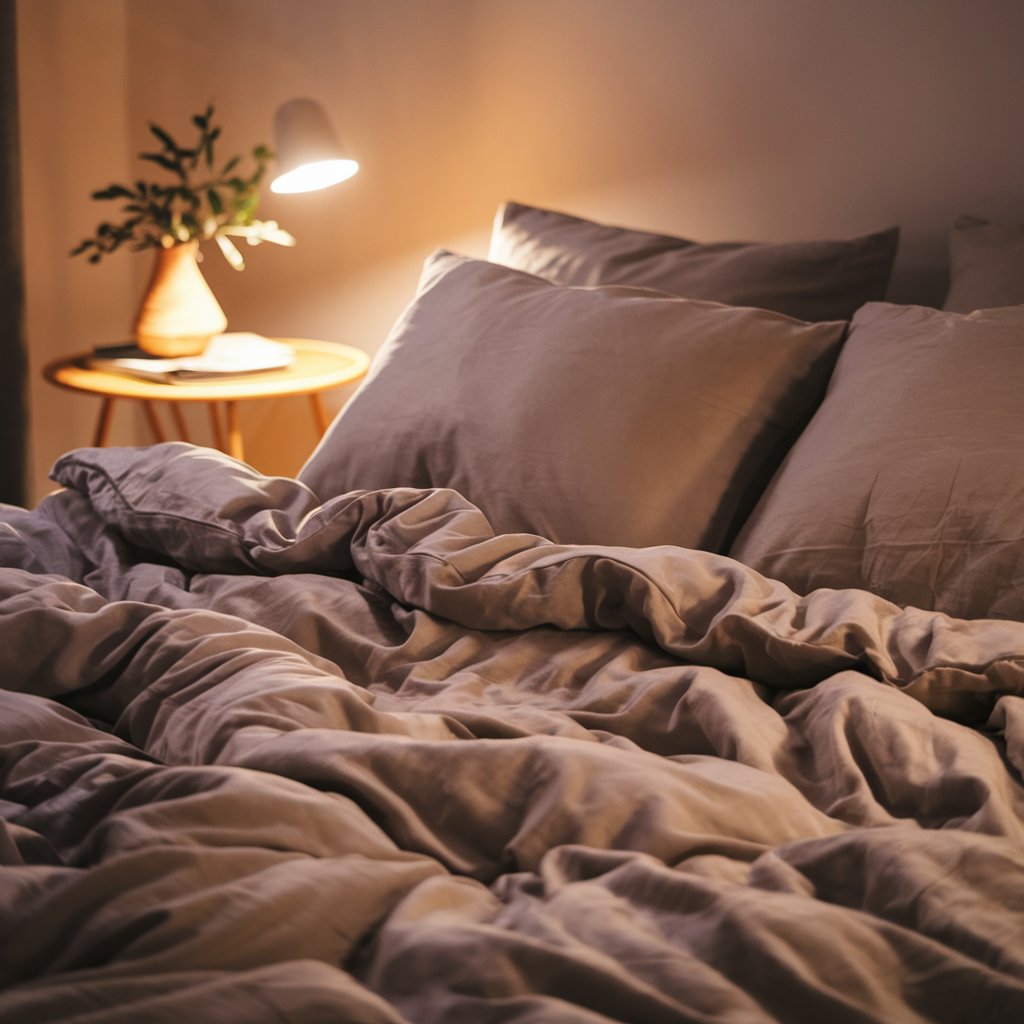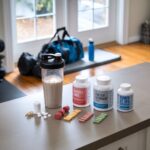Sleep hygiene isn’t just about having fresh sheets or brushing your teeth before bed. It’s the science and habit of creating a bedtime routine that ensures consistent, restful sleep. In today’s fast-paced world, where caffeine-fueled mornings are followed by screen-lit evenings, many people struggle to get the rest they need. However, mastering the basics of sleep hygiene can change everything.
Improving sleep hygiene is the key to better health, sharper focus, and a more energetic life. Let’s dive into what it takes to achieve this.
What Exactly is Sleep Hygiene?
In simple terms, sleep hygiene refers to a set of habits and practices designed to help you fall asleep faster, stay asleep longer, and wake up refreshed. It’s about creating an environment and a mindset that prioritises sleep quality. Think of it as hacking your nightly routine to optimise your body’s natural sleep-wake cycle, also known as the circadian rhythm.
Why should you care? Well, good sleep is essential for your physical and mental health. Poor sleep hygiene can lead to insomnia, daytime fatigue, and long-term health problems like heart disease and depression. But with the right practices in place, you’ll find that falling asleep becomes easier, and staying asleep becomes second nature.
The Environment: Setting the Stage for Sleep
Your bedroom should be a sanctuary for sleep. That means no scrolling through Instagram or catching up on emails in bed. The goal is to create a space that signals to your brain that it’s time to wind down.
Firstly, consider the lighting. Your body’s sleep-wake cycle is heavily influenced by light, specifically blue light from screens. Exposure to blue light at night delays melatonin production, a hormone essential for sleep. Dimming the lights or switching to warmer light tones in the evening can do wonders. Even better? Avoid screen time for an hour before bed, as it gives your brain time to relax and reset for the night ahead.
Temperature is another critical factor. A slightly cooler room – ideally between 16 to 18°C – is optimal for sleep. Warm temperatures can make you restless, while a cold room encourages deeper sleep. It’s a bit like Goldilocks: find the temperature that’s just right.
Lastly, noise can be a real sleep killer. Some people swear by white noise machines, while others prefer absolute silence. If you live in a noisy area, try earplugs or invest in soundproofing your bedroom.
The Routine: Preparing Your Body for Sleep
One of the cornerstones of sleep hygiene is consistency. Going to bed and waking up at the same time every day trains your body to follow a natural rhythm. It might sound boring, but this regularity pays off big time in the long run.
Avoid heavy meals, alcohol, and caffeine in the hours leading up to bedtime. These can disrupt your body’s ability to relax and enter sleep mode. Caffeine, in particular, is notorious for overstimulating the nervous system. Even if you’re not sensitive to caffeine, consuming it in the afternoon can keep you tossing and turning later at night. Instead, switch to a calming herbal tea in the evening, such as chamomile or peppermint.
Physical exercise is a fantastic way to promote sleep, but timing is everything. Working out during the day can help regulate your energy levels and make it easier to fall asleep at night. However, exercising too close to bedtime can have the opposite effect, leaving you wired. Aim for a workout at least three hours before hitting the pillow.
Developing a calming pre-sleep routine is also crucial. This might include reading, taking a warm bath, or practising mindfulness meditation. These activities help signal to your brain that it’s time to slow down, making the transition into sleep much smoother.
Stress and Sleep: The Never-Ending Cycle
Stress and sleep are locked in a frustrating cycle. The more stressed you are, the harder it is to sleep. And the less sleep you get, the more stressed you become. It’s a vicious loop that can seem impossible to break, but there are ways to manage it.
Mindfulness meditation is one powerful tool that helps break this cycle. Practising mindfulness before bed can quiet the mind, reduce anxiety, and make it easier to drift into a restful sleep. Focus on your breathing, pay attention to how your body feels, and let go of the stresses of the day.
Progressive muscle relaxation is another method worth exploring. This technique involves tensing and then relaxing each muscle group in your body, helping you to release physical tension and sink into a more peaceful state.
Finally, consider journaling before bed. Writing down your thoughts, to-do lists, or worries can help clear your mind, leaving you more relaxed and ready for sleep. It doesn’t have to be fancy – just jotting down a few lines about your day can make a difference.
Diet and Sleep: Fuel for Restful Nights
It’s often said, “You are what you eat,” and this holds true for sleep as well. Certain foods can enhance your sleep quality, while others can sabotage it.
High-sugar foods and processed snacks might be your go-to when you’re feeling peckish at night, but they can cause blood sugar spikes that make it harder to stay asleep. Instead, opt for foods that are rich in tryptophan – an amino acid that helps produce serotonin and melatonin. Good choices include turkey, bananas, and oats.
Magnesium-rich foods, like leafy greens, nuts, and seeds, are also great for promoting relaxation and improving sleep quality. If you’re prone to late-night cravings, consider a small snack of almonds or a warm glass of milk, which both contain sleep-supporting nutrients. Try this awesome and great value magnesium supplement here.
And of course, stay hydrated – but not too hydrated. Drinking too much liquid before bed can result in midnight trips to the bathroom, which disrupts your sleep cycle. Aim to stop drinking large amounts of water at least an hour before bed.
Final Thoughts: Prioritise Your Sleep for a Better Life
Mastering sleep hygiene isn’t just about better rest – it’s about living a healthier, more energised life. From creating the perfect sleep environment to practising a consistent pre-bedtime routine, every step you take to improve your sleep hygiene is a step towards better mental clarity, physical health, and emotional well-being.
Incorporate these practices into your daily life, and you’ll see the benefits go far beyond just waking up without hitting snooze. A well-rested you is a better, more productive you. So tonight, put down the phone, dim the lights, and let yourself drift off into a restful sleep.



